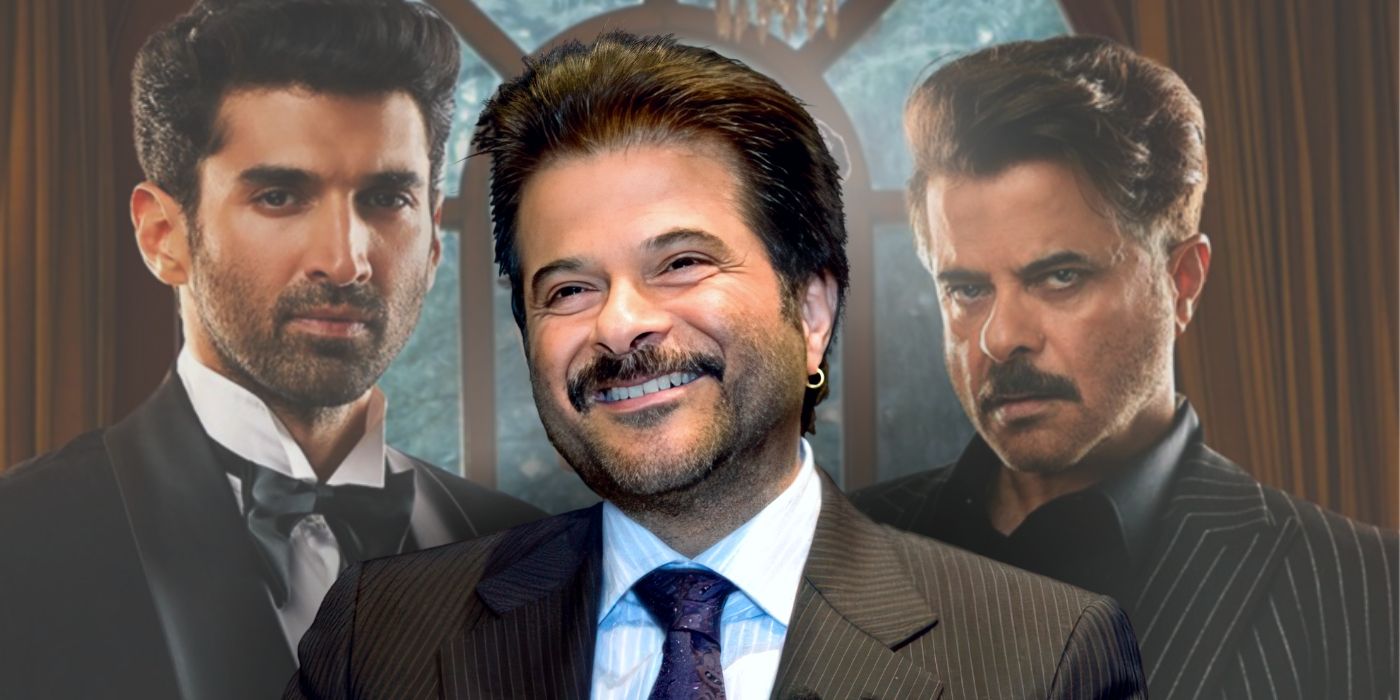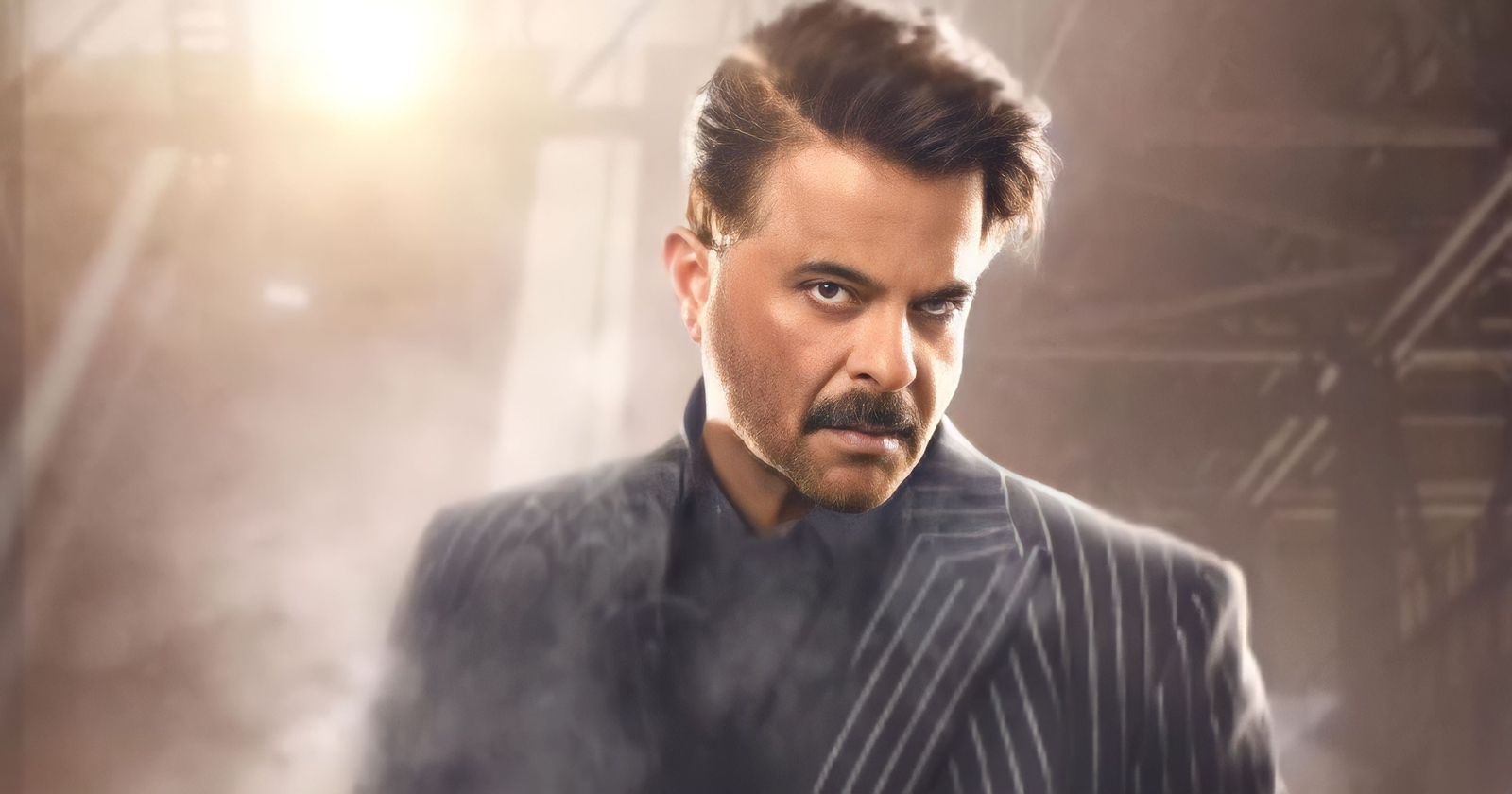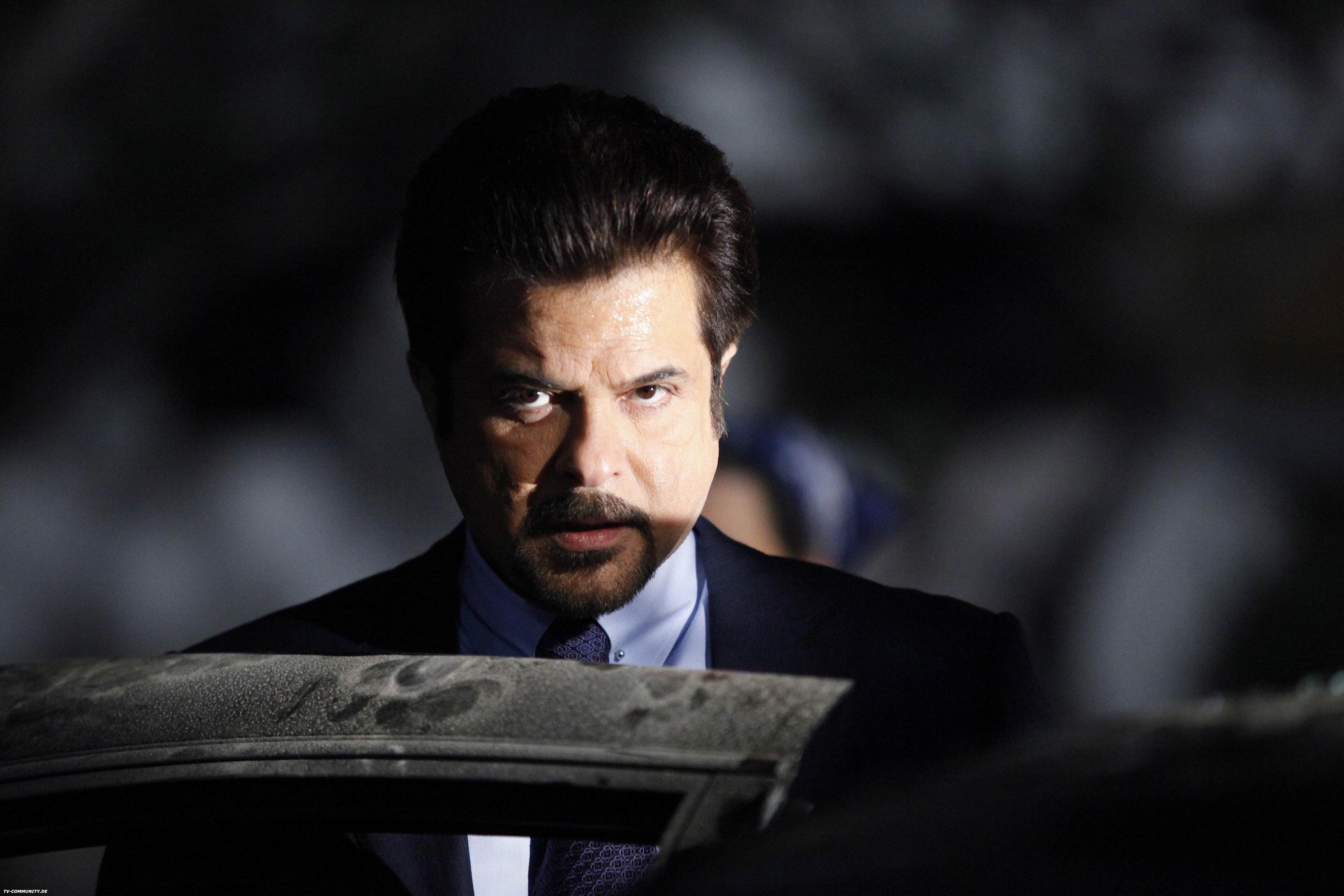After hitting an impressive milestone of four decades in Indian cinema—and over 100 films under his belt—Bollywood legend Anil Kapoor has a somewhat remarkable appetite for audacious roles that continue to push him into untapped territory. In recent years, this has translated across to streaming platforms with notable projects including Netflix's meta-movie AK vs AK and an adaptation of action-drama 24. The latest project set to join Kapoor's eclectic collection is an official adaptation of the high-octane thriller The Night Manager. Based on the John le Carré novel of the same title, the show was first translated on-screen into an Emmy award-winning series starring British icons Tom Hiddleston and Hugh Laurie in the lead roles. Kapoor's version sees him take the mantle from Laurie as menacing arms dealer Shelly whilst Bollywood hero Aditya Roy Kapur stars as the Night Manager Shaan, who unites with Indian intelligence agency RAW to take Shelly's empire down from the inside.
Ahead of The Night Manager's release, Collider sat down with Kapoor for a one-to-one chat on finding his feet with his on-screen counterpart and "the worst man in the world" Shelly, and the high-stakes realities of adapting such a celebrated show for a brand-new audience. Kapoor also delved into his perspective when it comes to pursuing roles that push him to do something different, how he juggles jumping between film and television projects, future international ventures, and the secret to 40 years of success in the industry. You can read the full interview below.
COLLIDER: Can I just say, first of all, it's such a pleasure. You're an icon of Indian cinema, what you've done for the industry is just remarkable.
ANIL KAPOOR: Thank you. Very kind. You're being very kind to me. Thank you so much. But still, I take that as a compliment.
Good, you should. So let's get right into it. Would you like to tell me a little bit about how your role in The Night Manager came about?
KAPOOR: It was pitched to me by the platform itself, the studio, Disney+ Hotstar. They said, “[Would] you would be interested in doing The Night Manager?” I had not seen the original version, and I saw it, I loved it, then I read the book, then I met the filmmakers, the writers, I heard the Indian adaptation, loved it, and said yes. And I got to do it.
Amazing. And were you able to pull on the original a little bit, or did you have to step back and be like, “I'm going to do my own thing?”
KAPOOR: Not at all, not at all. That's the wrong thing to look at. You have to take the best because you're doing it legitimately, and it's been produced by Inkfactory who produced the original. So they were also quite aware of the changes we were doing. But we were not changing for the sake of changing it.
So for my character, where my character's concerned, we are two different people, Hugh Laurie and myself. I'm a great fan of Hugh Laurie. I love his work. He's fantastic. He's got a great presence. I love his voice, I love his acting, I love his style. He just mesmerizes whenever he's on screen, you just can't stop watching him and listening to his voice. I've seen House, and, of course, I saw this show, and he was terrific in it. So of course, that was quite motivating for me.
So will I be able to get into the shoes of the great Rungta played by Hugh Laurie, the even greater Hugh Laurie? With my team, writers, and my support system, I started working on it, worked on my character, and now it's up to you all to see, and see what you'll feel about it. Is it good enough, or not?
So you mentioned it's important not to change things for the sake of changing things, but ultimately it's a different audience, you are two separate actors, it's a different cast coming into it. Did you have to personally take any considerations that you thought, “I feel like presenting it in this way would resonate better with an Indian audience,” or anything like that?
KAPOOR: I was one of the first actors to come on board. So they just put the responsibility on my head and said, “Okay, you're the senior [actor], and you're experienced, and just see to it that everything's right.” So I said, “I'm just an actor, why are you asking me to do all this?” [Laughs]
You're a little bit more than just an actor.
KAPOOR: Yes. I said, “Fine,” I said, “Okay, cool.” I said, “Obviously it's very important for me, also, besides me doing my character, everything else has to be correct.” So I like the way that cracked the Indian adaptation, the social situation of our country is completely different, the locations are different, the enemies are different, everything is totally different. The people are different over here, the way they react, the way they move, the way it would work. So all these things we had to keep in mind.
And once I heard what they had in mind, the vision (director) Sandeep Modi had, I said, “I think we are on a good wicket.” Then I didn't want to unnecessarily give my two bits here and there, but a little bit, whatever I had to tell them, I told them, and I started working on my role and my character.
The first thing I did was to find his voice. I said, “What will we show in Rungta's voice? So how will he pitch?” Besides, it's amazing, acting is getting the character, and it's a very isolated kind of a situation where you keep on thinking, dreaming, watching, observing, talking to people, reading the given material, and still, you don't get it. And slowly, step by step and moment by moment, you start getting the character.
Then, when you're on the set, you still feel, “Oh God, am I really doing it correctly? Have I got it right?” And then piece by piece, slowly, slowly, you do one scene and then when you do it, then I said, “I'm getting it, I'm getting it.” Still, in the next scene. So, it's not that you cracked it as a character where writing is concerned, where role is concerned, where performance is concerned, we should always be open to changes and improvements, without really changing completely. You have to make the foundation very strong, and that's what I did. I sunk my teeth into the character and [you have to] watch it and tell me what you feel about it.
Definitely, there's something so powerful because the character is so layered, he's ruthless, but he is also a family man, and he has that fierce loyalty to the people he cares about. When you tap into a character like that, where there is that light and shade, do you have to try and find somewhere that is a common ground for you, whether it's your shared love of family? Or do you not need to understand them in that respect?
KAPOOR: See, first of all, when a role – the book itself – is so rich in content, in the characterization, so half your job is done. Then there's a show which has been shot, wow. Then you see it happening. Then you go back to the book, you go back to the show. Then you have the adaptation, then you forget what you have seen and read, and then you deep-dive into it.
He's the worst man in the world. I said, “How do I... I've never played this kind of a character, a very worst man. I've never met anybody like that.” People expect me to be... I've always played the conventional leading man all my life, except for international projects where I played certain great characters like Slumdog Millionaire and Mission: Impossible - Ghost Protocol. A few of them, I've done it, but not as evil as Shelly Rungta. Even in such a way, because you see, the thing is he's an arms dealer. What he's doing is not right, morally not right. And then how do I make it relatable? How do I make it engaging? How do I make it exciting, interesting for me to perform and for the people to watch it and still feel entertained? So that's what I have tried to do in this show.
I know you've spoken about, in the past, how great characters that straddle the line between good and bad, or are inherently evil, but have a nicer good side, really give the audience food for thought. If the audience could come away thinking one thing after watching the show, what would you like that to be?
KAPOOR: See, first of all, you see what happens is I feel they should first, when they're watching, they should not know where I'm going. They should not know where I'm going. They should be, “Is he a good guy, is he a bad guy? Is he, is he, what about, what's, how's he... No, he does, he looks like a nice guy, he looks like a great guy, loves his family, loves his friends.” And then, of course, there's the other side of it.
Then, of course, he trusts people. That's one of the things that he allows Shaan (Kapur) to come into the family and look after the family and the business. So is he playing a game, what is he trying to do? So, that's the way. It's like a jigsaw, chess, which is happening in his mind.
Then, of course, he goes with his instinct, and sometimes he knows that there's something wrong happening, but he just wants it to happen. He goes with the flow, and still, he's enjoying the whole process of the doom, which is going to be the end ultimately, and having fun with it and still making it interesting, funny, exciting, charming, and fun to watch.
Is there something exciting about playing a character that's so far removed from yourself and anybody you know?
KAPOOR: Yeah, all the great characters, which are not something [that] you are in real life, and you try to portray those characters. So, to name a few, which I remember, which were fun to watch in India, I remember Gabbar Singh in Sholay, I enjoyed watching Nana Patekar in Parinda, Sadashiv Amrapurkar in Ardh Satya. Then, of course, these are the films which come immediately to my mind. Internationally, of course, The Silence of the Lambs?
The Silence of the Lambs. Yeah.
KAPOOR: Silence of the Lambs, Anthony Hopkins character. And of course, The Joker played by Jack Nicholson and then Heath Ledger. And then, of course, there is, again, Jack Nicholson in A Few Good Men, which is where he plays this general. These are the characters and these guys which really resonate. In a funny way, of course, there's Robert De Niro in Analyze This. There's Anil Kapoor in Welcome.
There is.
KAPOOR: They're bad guys, but still funny and interesting to watch. And so it's fun to do those roles. And then I did this character in Slumdog Millionaire who's this evil host. Is he good, is he bad, is he great? Where is he going? Why is he doing this to this little boy? Why is he giving him the wrong answer and guiding him, misleading him? He doesn't want him to win. Why is he doing that? What does he get? Why is he so evil? It's fun to play.
Then there was Mission: Impossible where it was a role which had the tendency of becoming very studio, but I tried my best to make it as engaging, as funny, as watchable. It was fun doing that film with Tom Cruise and Brad Bird, who directed the film, and Brian De Palma produced the film. It was fun doing that film. So quite a few of the films are roles which I've done, also including in a very small way, Malang, Jugjugg Jeeyo, they had certain gray shades to the character. And you don't expect the husband to be like that the way I did it in Jugjugg Jeeyo. Do you watch Indian films?
Yes, I love Indian films. I watched Jugjugg Jeeyo actually. I loved it. It was brilliant.
KAPOOR: Yeah, thank you.
Is there a difference for you when you're switching between TV and film? Do you have to put on a different hat or do you just apply the same methods to it?
KAPOOR: No, it depends. No, I don't think so. You're an actor, you just go deliver and make it as watchable as possible, as real, as engaging, as attractive. So that when the people watch it, they get glued to their seats watching you. Either they're entertained, or they love you, or they hate you. Something should happen when they watch you.
Yeah, definitely. I know you've spoken a lot in the past about how following your heart and following your gut is really essential when it comes to acting and selecting roles. At what point did you really learn to trust your gut? Does that just come with experience or do you have that inherently?
KAPOOR: Actually looking at it, I think it comes inherently.
If you see my choices from the beginning, from the time I did Kahan Kahan Se Guzar Gaya, I made a choice from the gut level, then Woh Saat Din. There are certain choices [that] I didn't make, they made, which I was lucky to be part of those films. There are some choices I did, like for Eeshwar and Nayak. These are choices I pursued and made those choices and so, that's what it is.
Sometimes these choices and these job opportunities come to you, and you should be flexible enough to say yes or no. I've been quite lucky that I've said yes to the right films, the right jobs, and that's the reason I'm still around, since more than four decades now.
Yeah, we've seen you in such a wide variety of projects. There was AK vs AK, which by the way I absolutely loved, it just had me on the edge of my seat the entire time, it was brilliant. It was completely out there.
KAPOOR: It was one of my favorite characters, one of my favorite films. I loved doing AK vs AK. I have a lot of love for that film.
It's brilliant. You've done AK vs AK, you've done 24, you're clearly unafraid of doing something different, which is amazing.
KAPOOR: Did you see Thar on Netflix?
Yes.
KAPOOR: That's one of my films which gave us a lot of critical acclaim, a lot of love, still getting it. It was wonderful doing Thar and AK vs. AK on Netflix, it was fantastic. They're still there. People who have not seen it who are watching your show, please go and watch both these films, they're fantastic films. And of course, go and watch on [February 17], streaming on Disney+ Hotstar, The Night Manager, the Indian adaptation.
Yes, and the breadth of roles is incredible. How do you remain fearless when it comes to stepping outside of the box or doing something different to what other people have done?
KAPOOR: I'm not fearless, I've just been lucky.
But these are bold steps. 24 was a massive one, AK vs AK.
KAPOOR: Yeah, yeah, sometimes you're fearless, and you're a fool. And you're fearless in a foolish way. And sometimes you're fearless in a good way. And you're fearless and then luck favors you, the universe helps you. So I feel it's a combination of everything.
You've had a lot of success in adaptations across film and TV. You mentioned Woh Saat Din, obviously, now you've done The Night Manager. Is there a formula to really nailing adaptations in the right way?
KAPOOR: There's no formula. Sometimes adaptations go completely wrong also. You just have to pray to God that the person who is cracking it, making it, adapting it, he does it correctly; and you make the right choice of working with them.
So many of my films, Eeshwar, Woh Saat Din, Beta, Virasat, 24, all have been adaptations of books or films, and they've been very, very successful. Yeah.
You've been in this industry for four decades. What is the secret to success to last, successfully, at the top of your game for 40 years?
KAPOOR: I think, first and foremost is, successful, first of all, you're fortunate that you've become successful. Then you have to be lucky enough to maintain that success. You have to work so hard that you maintain it. That's the tough part. Being top of the game every year, every year becomes more difficult. So that becomes very challenging. That all these jobs come to you, and you have the love of the audience. And people don't get...bored of watching you. So you have to keep on reinventing yourself and making different choices. Choices change, thinking changes, working with the right people. Of course, there's no substitute for hard work. Hard work, dedication, hard work is so important. And you have to be hard on yourself. And every achiever is hard on themselves.
Absolutely.
KAPOOR: So when everybody's sleeping, you are working out. When everybody is enjoying and having a drink, maximum, you indulge in a cup of coffee. Everybody's having sumptuous meals and going out for parties, you're sitting at home and working on your role, your character. And everybody is not looking after their health, you're working out and looking after, being fit and taking care of yourself. Looking after the family, having the love of the family and near and good and dear ones because they're the people who are going to support you in your ups and downs. So you have to take care of them.
There's so many things which make success, which is 360 degrees. It's all over success. Success in terms of profession, success in terms of respectability, success in terms of financial success, family success, fitness, health, friends, what do you feel about the environment all over the world, being a citizen of the world. And of course being an Indian, you should be a proud Indian. And I'm proud, and I'm very, very proud to be born in India and being in Indian films. And I want to be born again and again in India. Yeah.
I love that. I mean, obviously, you've done TV, and you're at the top of your game in Hindi cinema. Western audiences will largely know you from the likes of Slumdog Millionaire, Mission: Impossible, et cetera. Are you open to taking on more roles in Hollywood in the future?
KAPOOR: Sure. I'm not the one who's going to make ... the jobs have to come to me. There are certain times when I'm in a dilemma, I say, “What do I do?” Because I'm equally doing films in my own country. So if I've committed to them, then of course I cannot cancel those commitments. And sometimes whatever I've done [until] now internationally has been small but very, very effective.
But what is more, I find myself more successful because I'm still very close to everybody who [I have] worked with. That's my success. So my hope is not for more jobs, but to meet more people who would give me the same kind of love which I've got from all of the international projects which I've done.
Yeah, that absolutely makes sense. And just to wrap up, so The Night Manager, [there's] not long to go now. Going into it, were there, for you, any anxieties around it? Did the stakes feel especially high because it's so loved internationally?
KAPOOR: Because I'd done 24, so that was a mother of all films, it's a celebrated show all over the world. And The Night Manager, only one season. There [were] almost 10 seasons, and it's won a lot of Emmys, all the Golden Globes for best actor, best show, best drama. It's a very celebrated show, which people are still inspired, motivated. Everybody's looking forward to the third season, everybody's looking forward, Jack Bauer might come back. And we were pretty successful in adapting it in Hindi. So that was never a stress because I've done it earlier. So that is not a stress because I know if you do adapt it correctly, and we do it sincerely and honestly, it'll resonate. And so I'm confident that even The Night Manager will resonate for the people, for the consumers in this part of the world. Yes, I'm very, very confident. Yeah.
The Night Manager airs on February 17th and will be available to stream on Disney+Hotstar and Hulu.






